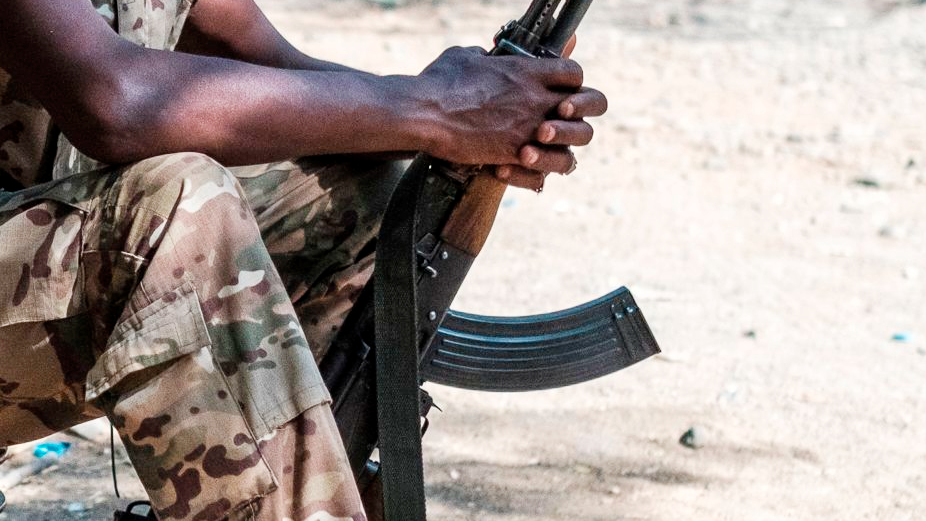Ethiopia's Tigray conflict: 'My wife died giving birth to twins while we hid'
- Published
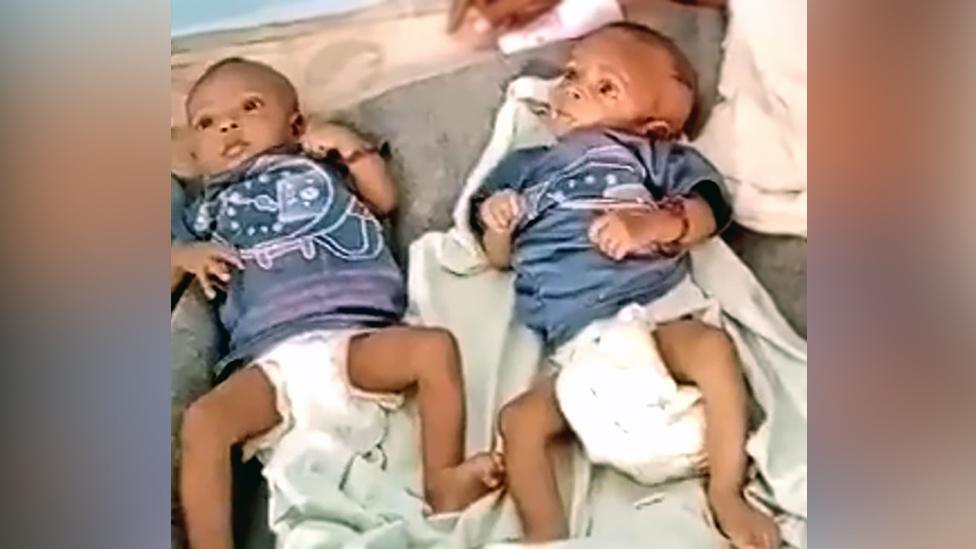
A father has told the BBC his wife was forced to give birth to twin girls while they hid from soldiers because of the brutal conflict raging in Ethiopia's Tigray region. She died days later and the widower eventually put the twins in a basket and fled the conflict to seek refuge in neighbouring Sudan.
Along with his five-year-old-son and 14-year-old brother-in-law, he is now at a refugee camp, where an American doctor is helping to look after the twins.
The battle for control of Tigray - which lies at the heart of the ancient civilisation of Aksum - is in its third month.
The Tigray People's Liberation Front and forces led by the Ethiopian military are fighting for power in a conflict laden with ethnic tensions.
The conflict has displaced about two million people, with about 60,000 fleeing to Sudan.
Each displaced person has a story to tell - of how they felt when they heard the first gunshot; how they hid in caves amid aerial bombardments, and how they were shot and sexually abused.
Many also remember how they overcame adversity and journeyed for days, without food and water, to reach a safe place.
This is the story of the widower Abraha Kinfe:

I am 40 years old. My late wife, Letai Tsegay, was 29. We got married 13 years ago, and had three children together.
We used to live on farmland near Mai-Kadra town in western Tigray. On 10 November, federal troops advanced to our area and went past our home. They did not notice us. It was a big relief.
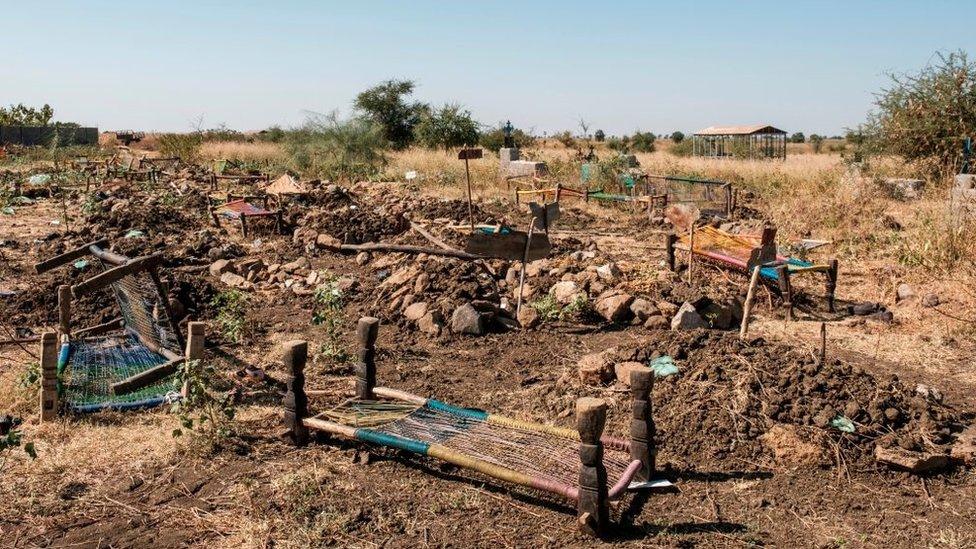
Western Tigray was one of the first areas to be devastated by the conflict
We then went to hide in the bush near our home with four of our neighbours. My wife was experiencing severe labour pains, but I was terrified to take her to the clinic in Mai-Kadra.
My wife gave birth to twin girls in the bush with the help of a woman hiding with us. Thank goodness for that.
Later that day, we went back home. Unfortunately and sadly Letai could not receive post-natal treatment. She could not get the injection that would stop her bleeding. After about 10 days, Letai passed away.
I was utterly heartbroken. With our four neighbours we buried her on our farm.
When my wife died I felt the world collapse all around me. I cried and cried holding her in my arms"

I wish I could have taken her to the clinic, but at the time things were upside down in the town and people were running away to save their lives, external. It remains a ghost town.
Five years ago, my family and I were displaced from Metama town [in the neighbouring Amhara region] due to ethnic fighting.
We moved to the Mai-Kadra area to rebuild our lives from scratch. We were allotted a piece of land by the local administrator for farming.
In our new place we built a small house with wood and mud. It was a comfortable place for me and my wife. Our son was born there. Even my twin daughters were born there, only for us to leave 20 days later.
When my wife died I felt the world collapse all around me. I cried and cried holding her in my arms. I hated the bloody war, which brought us total misery.
My beloved wife, mother of my children, passed away because she could not get basic medical treatment.
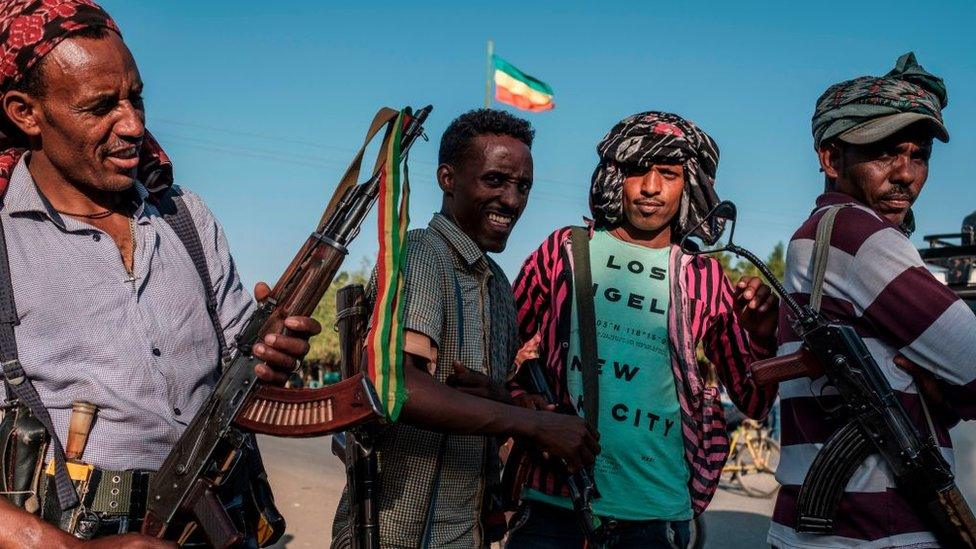
Pro-government forces from the neighbouring region of Amhara control towns like Mai-Kadra
Because the situation was still dangerous, my neighbours went away to Sudan. I stayed behind, with the twins, my son and brother-in-law.
We used to go and hide in the bush whenever we saw troops. It was very hard to look after twins alone, with no neighbours either.
Babies at that age need their mother to breastfeed them. I sustained them by giving them drops of water, sugar, dipping my finger in soup-like food allowing them to suck it time and again.
After about 20 days, I went to the federal army stationed in the area, and I asked them if I could take my twins to the clinic in Humera, another town close by.
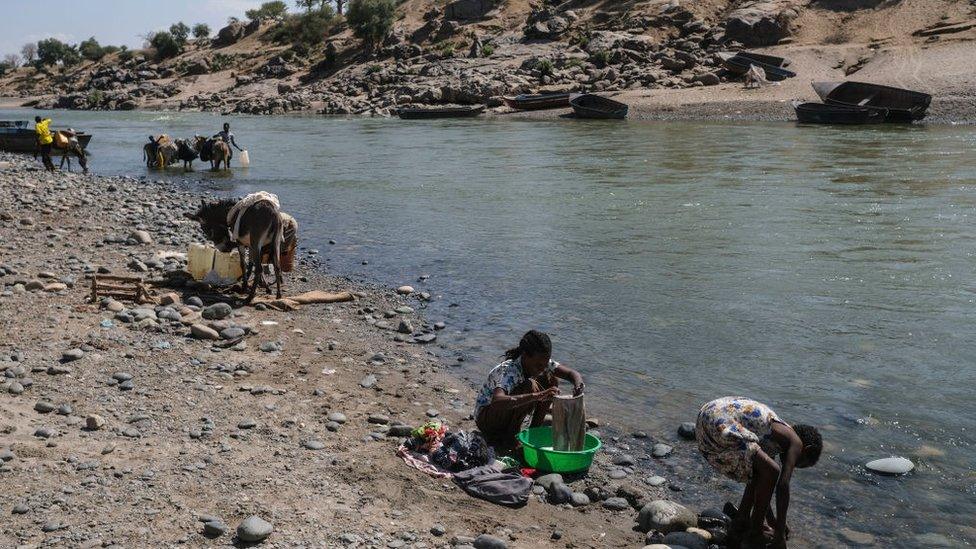
The Tekeze River has been a major crossing point for refugees
Luckily they allowed me to pass, but I then walked to the Tekeze River and crossed it by boat to reach Hamdayit in Sudan. I took the twins in a basket, and the two other children were also with me.
We are now getting shelter in the Hamdayit refugee camp. An American doctor from the Red Cross is looking after the twins.
She is providing them with the necessary sustenance and checking their development every three days. God bless her for her kindness and the support she has been providing to all the refugees.
Baptising twins
The twins are now more than two months old. I can see they are putting on weight. But my five-year-old son is missing his mother so much - he constantly asks for her. That breaks my heart. I hate lying by telling him she will one day re-join us.
I continually struggle to comprehend why Letai is no longer with us. Life is indeed harsh. Here are my twins, and I confess that they are constant reminders of my wife who died in my arms.


Fellow refugees sympathise with the situation and they try their best to give me some comfort.
They suggest naming the twins Eden [after the Biblical story about expulsion from the Garden of Eden], and Trefi believing their survival is already a miracle from God. Trefi means "stick around" in Tigrinya [widely spoken in Tigray and neighbouring Eritrea].
According to the Orthodox Christian tradition, baby girls should be baptized on the 80th day after birth. That day is coming up; but there is no church service in this refugee camp.
I still suffer from grief and pray to God that He gives me strength to raise my children in a safe environment. I hope this wretched conflict will stop and we all resume life where we left off.

More on the Tigray crisis:

Deep down I still grapple with why peace and security were taken away from us. Why do we have to suffer like this?
Why are we denied a safe existence while others, those who brought this tragedy upon us, are gratified with comfort and stability?
They are raising their children without trials and tribulations. Their children are enjoying the warmth of their homes, they are being looked after by their parents, and they are going to school and playing in their neighbourhoods.
'The grief is immense'
My thoughts go back to the day I left Metema and settled in the Mai-Kadra area five years ago. I worked hard to establish myself in the community, and worked hard from dawn to dusk to make ends meet. I was doing well to support my family.
I used the farmland I was allocated and rented other farmlands to generate more income. I used to have good sesame and sorghum harvests.
But here I am now with nothing to do, no land to farm, no wife to love, no community to be part of, no church to go to.
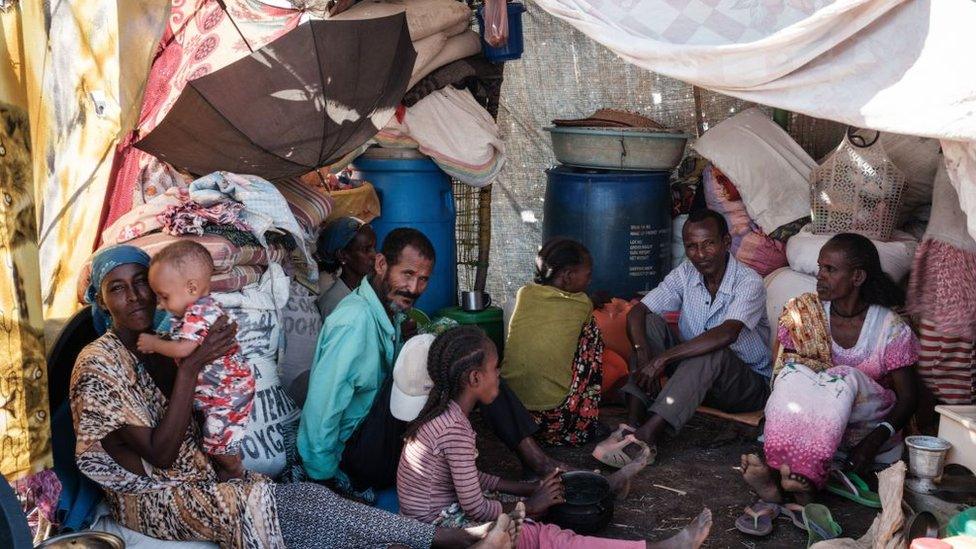
As Sudan sees an influx of refugees it has been calling for mediation to end the Tigray conflict
I also think about the crops I was about to harvest. I can't help but dwell on the past, what we used to own, what life was like, how my children frolicked, as I am trying to deal with life as a refugee. The grief is immense; my children do not deserve this.
Everything was suddenly taken away from me due to the senseless ethnic strife between the Amhara and Tigray people.
There are tens of thousands of refugees in camps in Sudan, and all of us are from Tigray. I can see that we are badly affected by the conflict.
I hope this war will end soon, and peace will prevail. We are longing to go back home so we could resume our lives in the land of our fathers and forefathers.
Related topics
- Published6 December 2020
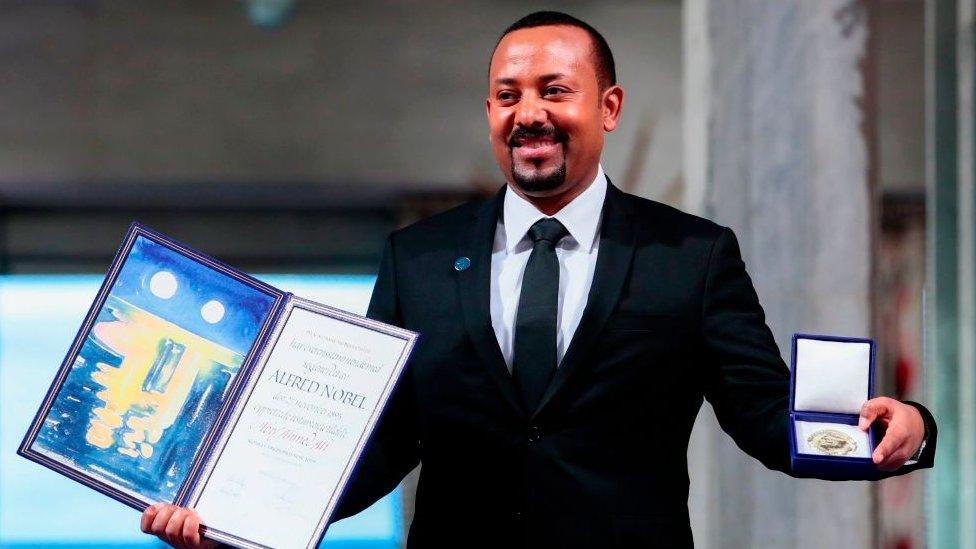
- Published20 December 2020
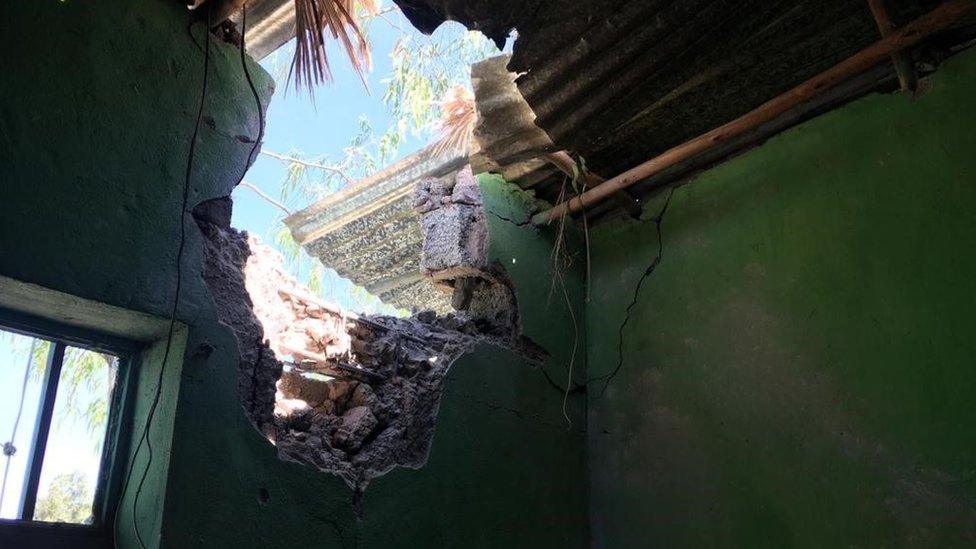
- Published17 December 2020

- Published10 December 2020
